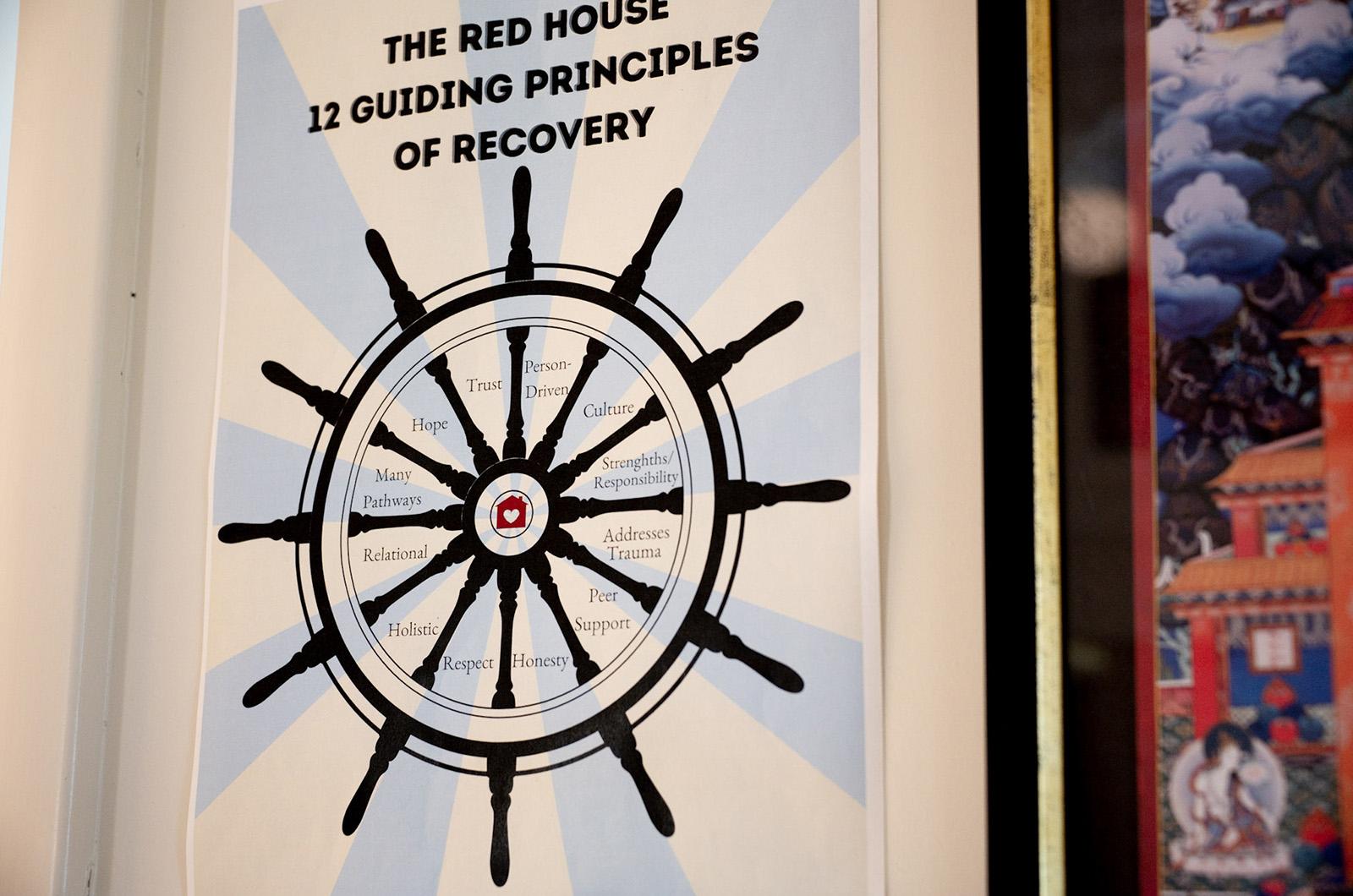Recovery, and its very many off shoots, is a bizarre gift. Even the events leading up to sobriety — which oftentimes are calamity and chaos — are a gift in drag, a gift that can only be seen as such in hindsight.
Among other things, it’s an invitation for personal development.
As a person in recovery, I’m struck by how misunderstood recovery can be with the general public. I was talking with a woman I’d just met who has a teenage boy. I told her I worked at the Red House, the Island’s Peer Recovery Support Center which is part of Martha’s Vineyard Community Services, and explained briefly that it’s a safe place and a community to seek tools and resources for those directly and indirectly affected by addictions, both substance and behavioral.
She said in passing — and in good humor — that she hopes I never see her son in there.
I know what she meant, especially as a father myself — that she didn’t want her son’s life to become unmanageable and spin out of control due to substance misuse or behavioral problems.
But what also got exposed to me, in that woman’s passing comment, were her prejudices about sobriety and recovery. We all have them. I had them. But to put only a negative spin on a recovery center does not tell the whole story. Which is whay I wish I told her that the Red House is where people come to get help, get good footing, to recover their potential. The Red House is a place where people can learn to be indispensable to the greater Island community. The people who come through our doors are courageous, since most who suffer do so silently and isolated.
And therein lies a common misunderstanding of addiction — that those behaviors are symptoms of a larger illness or imbalance. Some would argue disease, some would argue disorder, some would argue trauma response, some would argue spiritual malady.
I would argue all four.
Most people who suffer from addictions suffer in isolation. They suffer in silence. They keep it secret, keep it hid, for a whole host of reasons. Usually, it’s a perceived sense of shame or moral failing that keeps those who need help from seeking help. A lot of the time, people don’t want to air their laundry in public.
And yet we are all recovering from something, and it’s usually not what we think we’re recovering from. I’m not recovering from alcoholism, even though my last drink was 19 years ago. I’m recovering from distorted thinking, from childhood traumas (both real and imagined), from spiritual malaise, from a dis-eased family system, from codependency, from general self-sabotage...and I could go on.
Human beings are constanly beleaguered by addictive stimuli and substances. Our culture is one of addiction — you could even say we live in the Age of Addiction.
Sugar. Video games. Cell phones. Gambling. Sex. Shopping. Food. Even exercise. These can all be misused and become process addictions, or behavioral addictions. They can be subtle, discreet, hardly noticeable. They can be overt, glaring, flashing in neon. The degrees to which addictions — both process and substance — manifest are as manifold as the light spectrum.
The Red House is a place where people can get better, get on track to personal development and become an asset to the community at large. It’s where they find the tools and fellowship needed to recover from the beliefs and thoughts that got them to find temporary solutions with substances or behaviors in the first place.
We’d like to normalize recovery. Recovery doesn’t happen in isolation — and that’s where most who suffer from addictions are, out there in hiding, suffering on their own, hurting themselves and everyone in their life.
But because they’re not actively seeking help it’s somehow perceived as not a problem. The pretzel logic goes like this: if I don’t acknowledge my problems, I don’t have them.
And when the problem(s) are acknowledged, admitted and recovery begins to happen, it is an absolute gift. It’s a chance to break an oftentimes generational chain, a chance to discover oneself and truly bloom, and a chance to put an end to destructive relationships once and for all.
Dave Ferguson lives in Oak Bluffs and is the program coordinator at The Red House.




Comments (4)
Comments
Comment policy »